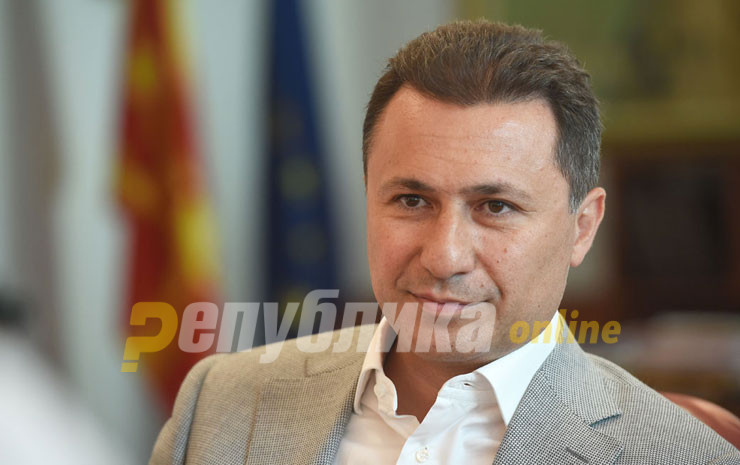Nikola Gruevski reveals new details about the downfall of Special Prosecutor Katica Janeva, claiming that she was pressured by Zaev to resign, but refused to do so.
Sometime between March and April, Katica Janeva was invited to Zaev’s office through the back entrance, used by the Prime Minister, for the first time. Before she would simply use the main entrance. Following the meeting she was visibly disturbed and informed people close to her that she was asked to resign so that SDSM could keep controlling her SPO office through a different candidate loyal to them. Later they would repay her, they told her, with the position of Chief Justice of the Supreme Court (whose removal was apparently in the works even then). Aware that she doesn’t meet the legal requirements to be appointed to the Supreme Court, she fiercely resisted Zaev, and told him that “if I go, you go”. We see that that is not yet the case. Still, Zaev knows what she meant when she said that, Gruevski revealed today.
The former Prime Minister wrote a correction to one of his earlier comments on the SPO, when he claimed that Janeva had one of her prosecutors, Trajce Pelivanov, dig for dirt on Zaev in the large cache of wiretaps she controls when it became clear that she is in danger. Gruevski corrects the statement, saying that the task fell to one of the SPO investigators close to Janeva, and that the action was going on for months, but nothing was found because the tapes were purged for any incriminating conversations that involve Zaev.
Zaev knew the law well because only a week before he formally handed over the tapes to the SPO he participated in writing the law, and went to extraordinary lengths to manage every detail. That was the formal hand-over. In fact, the tapes were given by Zaev to Janeva a month later, in January 2016, in his tile factory in Strumica. The delay was due to his need to remove all compromising materials from the tapes that could go back to him and damage him. The need to do so was stronger than the realization that by delaying the handover after the date provided in the law, the tapes will be even less admissible as evidence, Gruevski adds.





Comments are closed for this post.